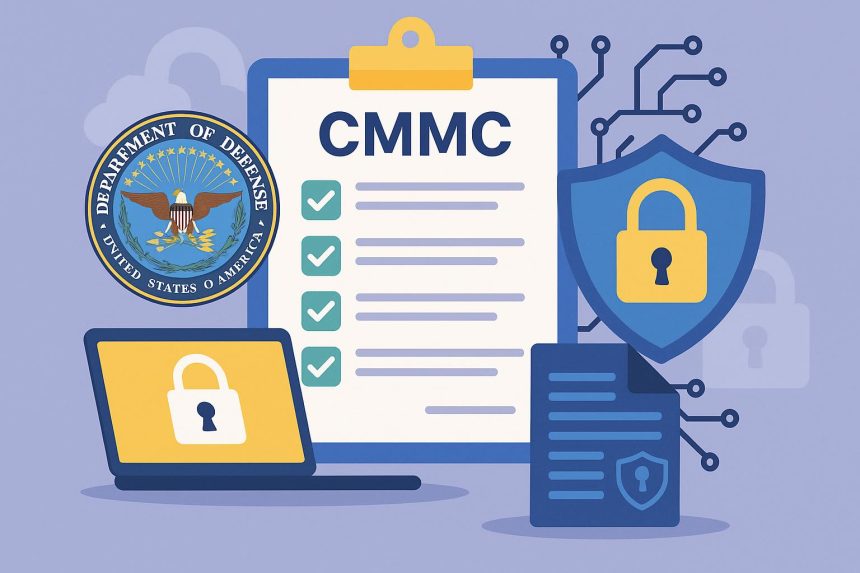The Cybersecurity Maturity Model Certification (CMMC) is the U.S. Department of Defense (DoD) standard for making sure contractors protect sensitive information. It’s required when working with the DoD, and achieving compliance can be technical and time-consuming. It requires evidence, process changes and preparation for formal assessment.
That is why many contractors hire experienced consultants — they turn requirements into a simple roadmap, close security gaps and guide them through the audit. The top CMMC consultancy will fit a contractor’s size, budget and risk profile.
The Criteria Used to Assess the Top CMMC Consultants
Many factors were considered, including if companies had proof of authorization, relevant DoD experience, a business-minded approach and services that align with readiness goals. The specific criteria used to evaluate and rank each consultancy include:
- Official authorization: Firms that can show formal credentials were prioritized. Authorization shows they understand the assessment rules and accepted evidence.
- Depth of DoD Industrial Base (DIB) experience: Consultants must have a proven track record, particularly those from organizations similar in size, contract type or technical complexity.
- Holistic approach: The best firms integrate security into operations and processes. Consultancies that balance technical controls with policies, training and change management were favored.
- Scope of services and support: The variety of offerings, such as gap analysis and remediation plans, was also considered. Those with a wider scope were chosen to speed up the roadmap.
Who Are the Best CMMC Consultants for DoD Contractors?
The following firms are the top options to consider for defense contracting.
1. CBIZ Pivot Point Security
CBIZ Pivot Point Security is a top pick for defense contractors due to its long-standing experience with formal assessment credentials. It is a Certified Third-Party Assessor Organization (C3PAO) — one of the early organizations to gain that accreditation — and is deeply familiar with what auditors look for. With that mix of approval and real-world know-how, it can translate CMMC requirements into an auditable program.
What it does best is take a business-first approach. CBIZ Pivot Point Security focuses on aligning security controls with operational needs so compliance supports contracts and daily work. Its service catalog is broad, which includes:
- Gap assessments and remediation roadmaps
- National Institute of Standards and Technology (NIST) and Defense Federal Acquisition Regulation Supplement (DFARS) alignment
- Pre-assessment readiness testing
- Evidence collection
- Virtual Chief Information Security Officer (vCISO) or managed security support
It is an excellent fit for contractors who want a full-service partner and prefer to minimize vendor handoffs. Overall, CBIZ Pivot Point Security incorporates end-to-end services that make it a sensible first choice for teams that need a clear path to CMMC readiness.
2. Sera-Brynn
Sera-Brynn is a globally recognized cybersecurity firm and a C3PAO, meaning it can advise and support formal CMMC assessment activities. It has a deep background in compliance expertise, offering program-level security services. Such specialization ensures it can handle complex, regulated environments continuously.
One of its key strengths is building programmatic compliance. It creates clear remediation frameworks, drafts policies and procedures, runs tabletop exercises, and offers penetration testing and incident-response guidance. Ser-Brynn’s consultants focus on measurable outcomes, so audits are manageable and compliance becomes an integral part of how the business operates.
Sera-Brynn is a great fit for larger primes and enterprise contractors that need a scalable approach to CMMC. It especially works well for teams that want advisory services tied to real-world testing and incident readiness. It also works across the broader DIB, making it a solid choice when compliance needs are likely to grow.
3. KLC Consulting
KLC Consulting is a highly specialized option that focuses squarely on CMMC compliance. Its practice is built on helping DIB suppliers meet DoD requirements. That narrow focus means its playbook is practical and repeatable. It understands the common pitfalls that contractors face and keeps recommendations tightly prioritized to ensure work stays manageable.
The firm also holds dual credentials as a C3PAO and is a licensed training provider, which makes it helpful for assessment-ready work and staff training under one roof. Typical engagements combine:
- Gap analysis
- Policy drafting
- Evidence collection
- Hands-on training sessions
These key services ensure that teams know how to operate compliance processes after the consultant has left. Its clients are typically contractors who want a specialist partner that moves methodically. This clientele often includes small and midsize suppliers that prefer a phased roadmap or larger teams that value integrated training plus assessment support. For those who want to build internal capability while becoming audit-ready, KLC’s stepwise approach is worth considering.
4. NeoSystems
NeoSystems is an integrated solution provider offering CMMC consulting, along with managed IT and security services. Rather than handing over a roadmap and leaving, it can implement and operate the controls so the work becomes audit-ready and also shapes how the environment is run on a day-to-day basis.
Its model commonly bundles:
- Gap assessments
- Policy and procedure implementation
- Endpoint and cloud security management
- Ongoing monitoring and support
This single-vendor approach reduces the coordination burden between IT and compliance teams and ensures consistent application of controls across people, processes and teams. Contractors choose NeoSystems because they prefer to outsource their compliance and IT operations.
NeoSystems is also a good match for those who need SLA-backed managed services and a 24/7 security operations center (SOC) to shrink detection windows. Modular contracts facilitate gap assessments and hands-on implementation, ensuring controls are operational. It will also deliver auditor-ready evidence bundles and incident-response support to shorten assessment timelines.
5. PreVeil
PreVeil is a technology-first solution that addresses one of the most challenging technical problems in CMMC — how to share securely and store controlled unclassified information (CUI). According to industry reports, 95% of data breaches involve human error. Using end-to-end encryption to keep CUI unreadable can significantly reduce exposure. PreVeil provides end-to-end encrypted email, file-sharing and collaboration tools built on a zero-knowledge model, so sensitive data remains encrypted.
What it does best is secure CUI in day-to-day workflows without heavy on-premises infrastructure. Teams can continue working in familiar apps while cryptographic protections handle the complex tasks. This shortens the path to meeting technical controls and lowers the effort needed to produce auditor-ready evidence. Many CMMC partners recommend PreVeil as a simple building block rather than a full compliance partner.
Small to midsize suppliers, distributed teams or subcontractors that regularly exchange CUI and want a low-friction, high-assurance way to protect it typically choose PreVeil. If the main gap is secure collaboration, PreVeil can be a fast, technical fix.
How to Choose the Right CMMC Consultant
Picking a CMMC partner is about finding the right fit. A consultant should understand the contract type, be able to meet a specific timeline and budget, and turn audit requirements into iterative work.
1. Assess Internal Resource
The first step should be to audit internal resources. List who is on the IT security team, their skills and certifications, the controls and tools in place, and the time and budget available.
Be honest about gaps. For instance, if a team is already stretched thin or lacks security expertise, it likely needs a partner who offers hands-on implementation. This quick reality check helps with deciding what to outsource or keep in-house. Plus, it makes comparing proposals much easier.
2. Define the Specific Needs
Decide what kind of help will be essential before talking to a vendor to save time and money. For instance, if a contractor does not have a security team, they should consider a managed service for comprehensive coverage.
If they already have capable staff but need a clear path to audit readiness, then they will need strategic advisers who create prioritized roadmaps while training teams. Lastly, if a gap is a specific technical control, a focused technology solution can quickly plug that hole and provide advisory services to support the program work.
3. Verify C3PAO Authorization
Verify a firm’s claims by checking the official Cyber AB marketplace to confirm a consultant’s credentials and determine if they are permitted to perform the required level of assessment. Ask the vendor for the assessor’s name and a link to their listing, and confirm that those names match the Cyber AB record. Also, ask for recent client references or examples of assessments they have supported to identify any mismatches between marketing and actual capability.
Choosing a CMMC Partner That Fits
CMMC readiness requires finding a consultant whose authorization, DIB experience and service model match the client’s team, timeline and budget. Use the criteria and profiles to shortlist firms and compare evidence deliverables. The right consultant will transform audit requirements into repeatable processes that reduce risk and enable a team to focus on its mission.
Lynn Martelli is an editor at Readability. She received her MFA in Creative Writing from Antioch University and has worked as an editor for over 10 years. Lynn has edited a wide variety of books, including fiction, non-fiction, memoirs, and more. In her free time, Lynn enjoys reading, writing, and spending time with her family and friends.















